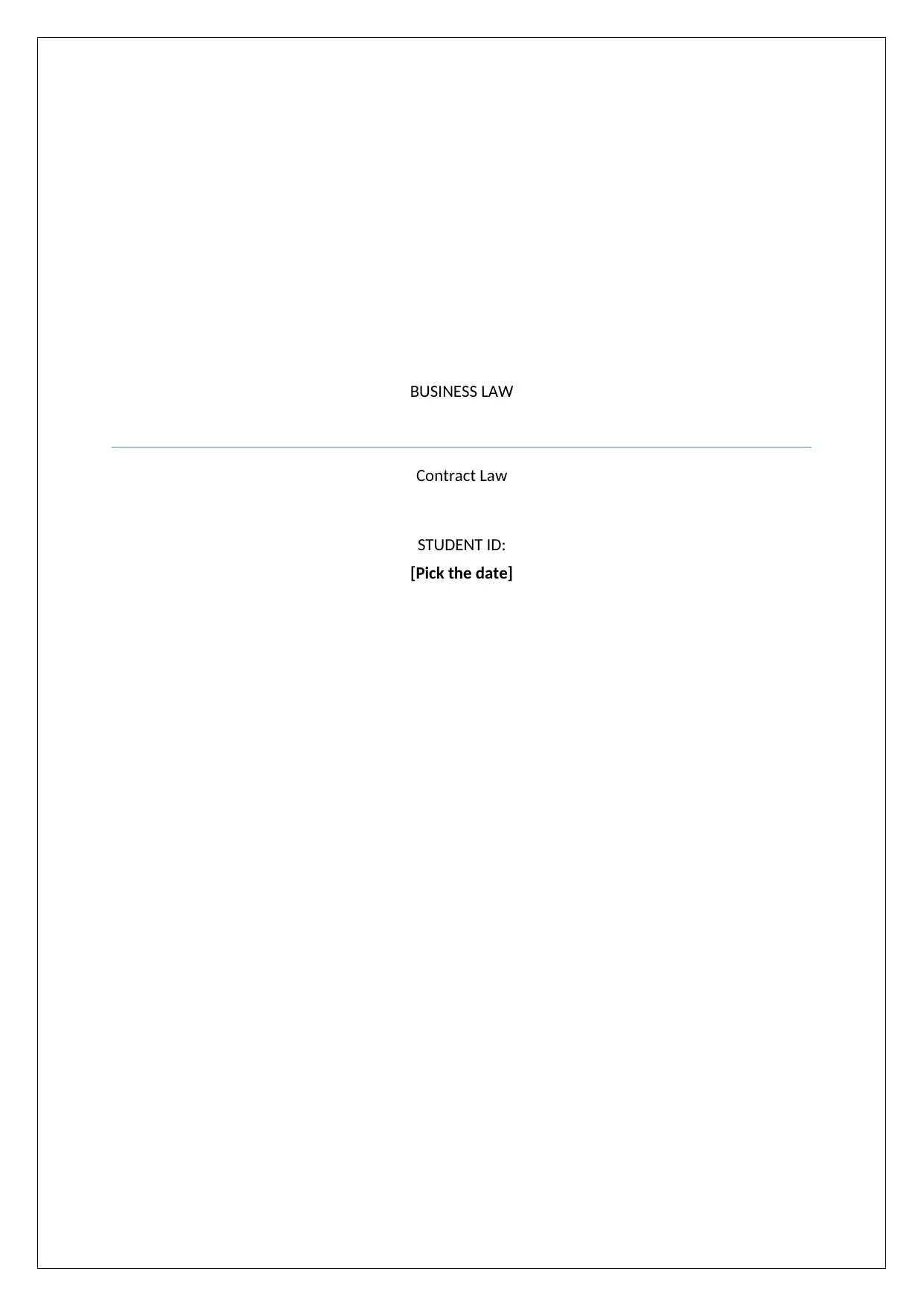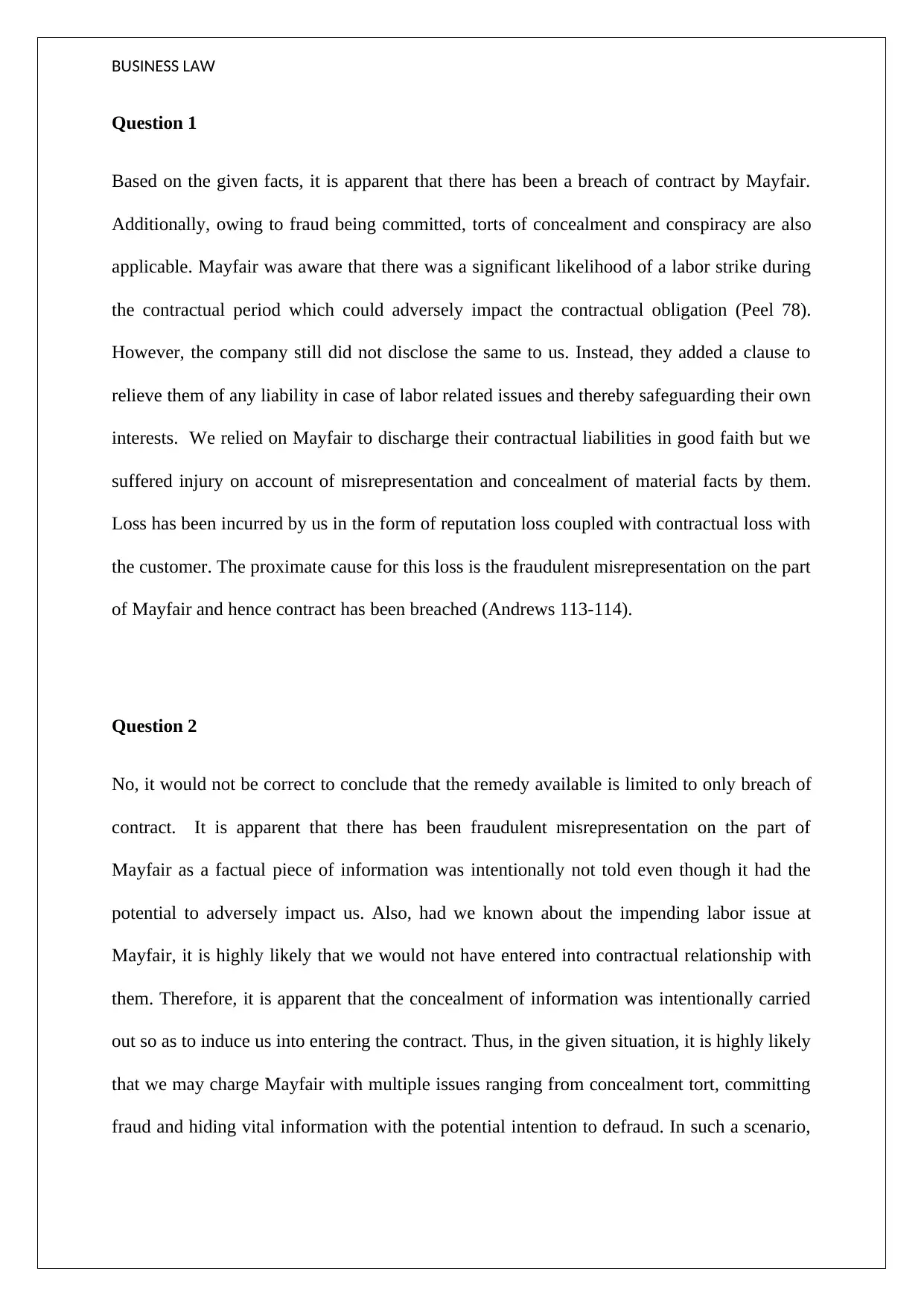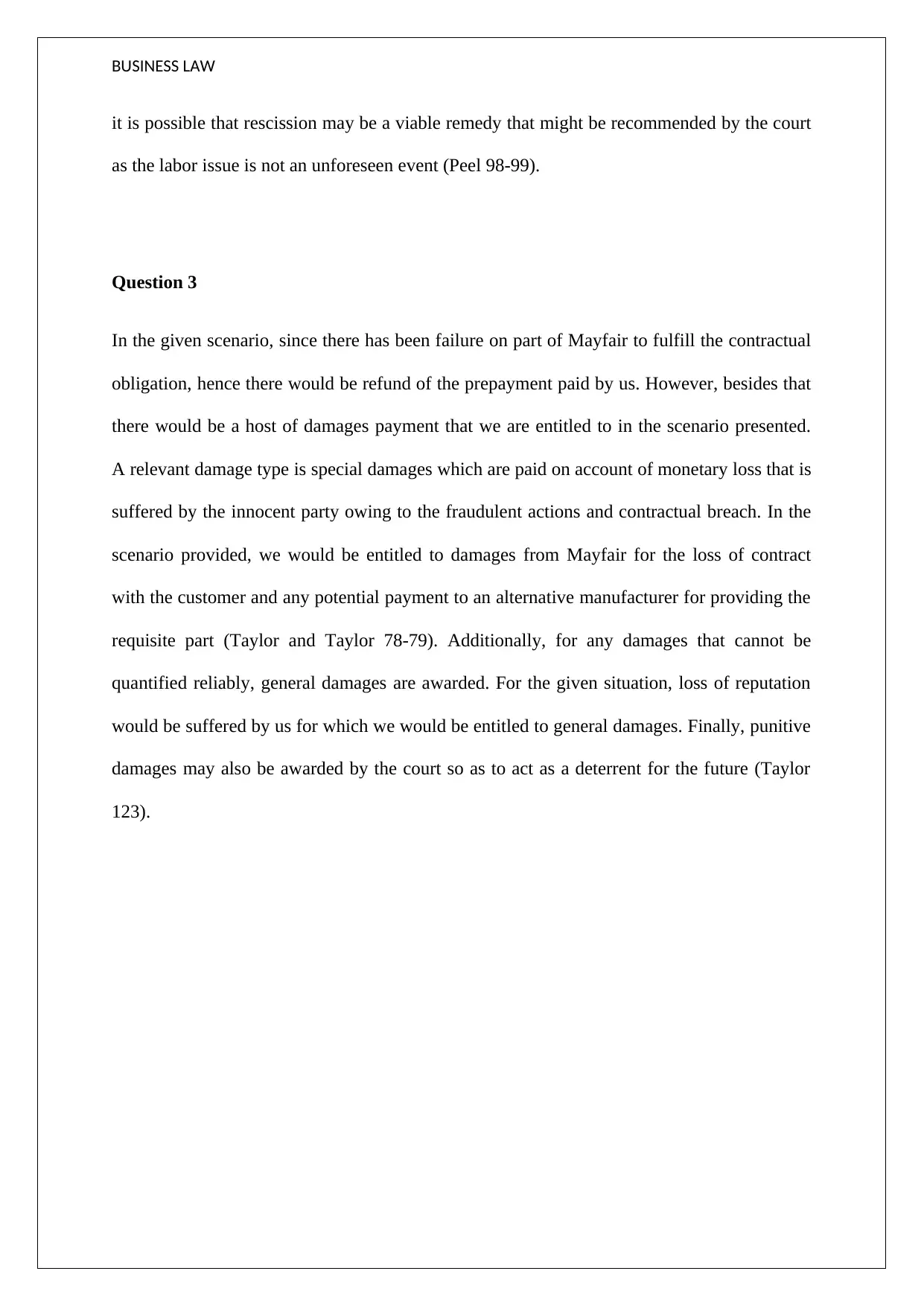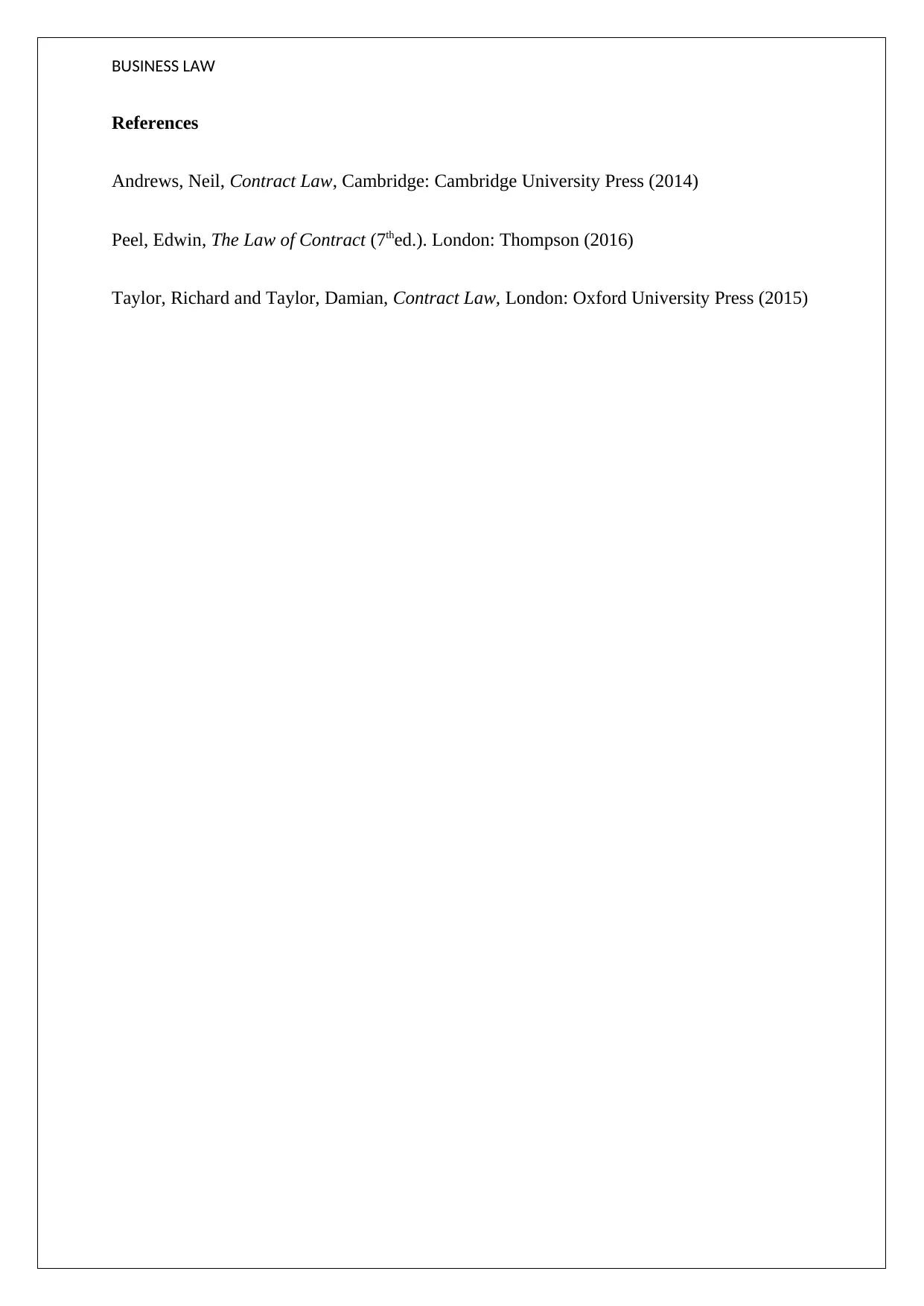Mayfair Case Study: Contract Law Breach, Fraud & Remedies Analysis
VerifiedAdded on 2023/04/21
|4
|629
|200
Case Study
AI Summary
This case study examines a breach of contract by Mayfair, highlighting potential torts of concealment and conspiracy due to fraudulent misrepresentation. Mayfair failed to disclose the likelihood of a labor strike, adding a clause to avoid liability, which resulted in reputational and contractual losses for the other party. The analysis questions whether the remedy is limited to breach of contract, considering fraudulent misrepresentation and intentional concealment, suggesting rescission as a viable remedy. Furthermore, it explores the damages that the affected party is entitled to, including special damages for monetary loss, general damages for loss of reputation, and potentially punitive damages to deter future misconduct. Desklib offers this and other solved assignments to aid students in their studies.
1 out of 4











![[object Object]](/_next/static/media/star-bottom.7253800d.svg)